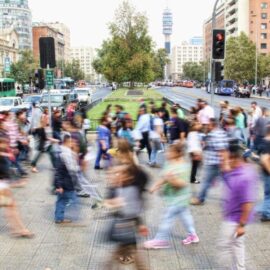

This article is an excerpt from the Shortform book guide to "Predictably Irrational" by Dan Ariely. Shortform has the world's best summaries and analyses of books you should be reading.
Like this article? Sign up for a free trial here .
How can social norms promote acts of selflessness? Why do people try harder when they’re not being paid?
Experiments have shown that when given free stuff, people are less likely to be greedy and more likely to selflessly leave some for others. When those items cost even a small amount of money, people are more likely to greedily purchase more. This could have serious implications for society.
Keep reading to learn how “free” things can increase acts of selflessness.
Why Free Things Make Us Selfless
In this article, we’ll examine how market norms and social norms may affect the way people act when compensation is demanded of them and how that often leads to acts of selflessness.
First, we’ll discuss the standard economic laws of demand, and how these laws are bent when products are free. These laws state that when the price of a product is lowered, the demand for the product will increase, for two reasons:
- More people are in the market because they can now afford the product.
- When the price is lower, each person is likely to buy more units of the product.
Based on the standard economic model, you’d rationally assume that if you offered a product for free, the demand would increase substantially. Everyone would be able to “afford” the product, and each person would want more than one unit of it. But, as the following experiment reveals, standard economics doesn’t take into account how “free” changes these laws.
Experiment: Free Candy
A candy stand was set up in an MIT student center. In the first round of the experiment, the candies were sold at the low price of 2 cents apiece. In the second round of the experiment, the candies were free.
- While only 58 students purchased the low-cost candy, 207 students took the free candy—rationally, the lower price meant that more people were in the market for the product, supporting the first law of demand.
- On the other hand, the second law of demand didn’t hold up. When the candies came at a cost, most students purchased a handful—and it was expected that rationally, they’d take even more when the candies didn’t cost anything. However, when the candies were offered for free, the students selflessly only took one or two candies each, leaving plenty for other students to enjoy.
These results suggest that when we’re operating under market norms, we adopt a more selfish mindset. However, when things are free, we operate under less selfish social norms and act in ways that benefit everyone.
Social Norms Can Create Better Societies
The knowledge that people become more altruistic outside of monetary transactions can have interesting implications for our communities—as long as we focus on maximizing the social exchanges in our lives and are careful to prevent them from slipping into market norms. For example, while hiring a public safety officer might feel like the rational choice for a safe neighborhood, it would likely be more effective to put a Neighborhood Watch program in place for your community. Bound by the obligations of community, your neighbors would be more proactive in helping in one another and looking out for one another.
Furthermore, policymakers should be attuned to the ways that market norms and social norms affect selfishness. Many policies and practices aren’t effective because they’re based on market norms—pushing corporations and individuals to act selfishly, perhaps creating even bigger problems. A good example of this is the Cap and Trade program meant to reduce carbon emissions by fining corporations who exceed their set emissions limit. Rationally, the threat of being forced to pay a huge fine would cause corporations to adopt more ecological practices. However, the Cap and Trade program imposes a market norm on a social responsibility by putting a price on pollution. Large, well-funded corporations can easily justify the small price of paying for excessive carbon emissions because they can expand and outsource, thereby maximizing their profits.
A better way to handle this would be to remove the monetary exchange and push social norms, perhaps by requiring corporations to send their pollution information to their shareholders or post their pollutant information on their packaging.

———End of Preview———
Like what you just read? Read the rest of the world's best book summary and analysis of Dan Ariely's "Predictably Irrational" at Shortform .
Here's what you'll find in our full Predictably Irrational summary :
- How logic is failing you on a daily basis
- How to identify your irrational behaviors
- Why getting something for free can cause you to make bad decisions






